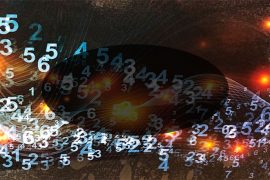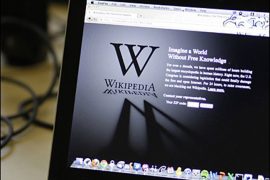by Barry Brownstein for FEE.org
By now you have probably heard the exhortation “stay woke.” To be woke means a person is “an informed, questioning, self-educating individual” who “look[s] past the provided narrative.” Yet, most among the self-proclaimed woke are still fast asleep. They may have a facile way of imparting narratives about issues, but those narratives are often based on neither sound facts nor theories.
In his book Factfulness, Hans Rosling, the late great professor of international health, offers 13 fact questions to test “our knowledge about the world.” One of those questions is foundational to our beliefs about the state of the world:
In the last 20 years, the proportion of the world population living in extreme poverty has …
A: almost doubled
B: remained more or less the same
C: almost halved.
The answer is C:
“Over the past twenty years, the proportion of the global population living in extreme poverty has halved.” Rosling considers this a “revolutionary” change—“the most important change that has happened in the world in [his] lifetime.” He adds, “It is also a pretty basic fact to know about life on Earth. But people do not know it. On average only 7 percent—less than one in ten!—get it right.”
About this dramatic change in the reduction in the world’s poor, most are not woke. Many of the self-proclaimed woke cling to a variation of the narrative that capitalism is impoverishing the world. Their illusions may be shared by many, but that doesn’t make them right.
Rosling adds these pointed observations:
The Democrats and Republicans in the United States often claim that their opponents don’t know the facts. If they measured their own knowledge instead of pointing at each other, maybe everyone could become more humble. When we polled in the United States, only 5 percent picked the right answer. The other 95 percent, regardless of their voting preference, believed either that the extreme poverty rate had not changed over the last 20 years, or, worse, that it had actually doubled—which is literally the opposite of what has actually happened.
If you think the “better-educated” would do better, you would be wrong. Rosling writes:
I have tested audiences from all around the world and from all walks of life: medical students, teachers, university lecturers, eminent scientists, investment bankers, executives in multinational companies, journalists, activists, and even senior political decision makers. These are highly educated people who take an interest in the world. But most of them—a stunning majority of them—get most of the answers wrong. Some of these groups even score worse than the general public; some of the most appalling results came from a group of Nobel laureates and medical researchers.
Those sharing their opinions on social media, professional pundits, and professors are mostly profoundly ignorant about basic facts. Worse, Rosling writes:
Not only devastatingly wrong, but systematically wrong. By which I mean that these test results are not random. They are worse than random: they are worse than the results I would get if the people answering my questions had no knowledge at all.
The systemic bias is in one direction: “Every group of people,” Rosling surveyed, “thinks the world is more frightening, more violent, and more hopeless—in short, more dramatic—than it really is.”
If You Can Observe a Thing
Why, Rosling asks, “is the misconception of a gap between the rich and the poor so hard to change?” Rosling writes, “Dividing the world into two distinct sides is simple and intuitive, and also dramatic because it implies conflict, and we do it without thinking, all the time.” Thus, Rosling observes, journalists “prefer stories of extreme poverty and billionaires to stories about the vast majority of people slowly dragging themselves toward better lives.”
Rosling offers many other cognitive biases, such as a “negativity instinct,” that prevent us from seeing the tremendous progress occurring in the world. These biases are significant, and behind these cognitive biases are theoretical biases.
Albert Einstein observed to his colleague Werner Heisenberg, “Whether you can observe a thing or not depends on the theory which you use. It is theory which decides what can be observed.”
If you understand why free markets have lifted billions out of poverty, you will see the evidence.
If you understand why free markets have lifted billions out of poverty, you will see the evidence. If you are waiting for a socialist revolution to help people rise above poverty, you will be blind to the billions who already have.
According to Rosling, “The picture that most Westerners see in the media and carry around in their heads” is this: “The rich are getting richer and the poor are getting poorer; and the number of poor just keeps increasing; and we will soon run out of resources unless we do something drastic.”
How Woke Are You?
To complement Rosling’s fact-based quiz, I offer this 15-question economics self-assessment taken from a 45-question assessment developed by me and my wife Deborah, a marketing professor, for an MBA economics and business environment course.
This self-assessment will measure your understanding of the conditions under which society can continue to progress and lift billions more out of poverty. Theoretical grounding will help you look past the “provided narrative” blaring at us daily that bigger government is needed to alleviate suffering and save the world.
How woke are you? The real woke understand economics.
On a scale of “1 to 7,” where “1” means “strongly disagree” and “7” means “strongly agree,” select the number that best represents the extent to which you agree or disagree with each of the following statements:
- I have trouble conceiving of an economic order that is not deliberately made for a specific purpose.
- It is likely that a group of well-intentioned government energy experts can direct energy research toward the next breakthrough in sources of efficient energy.
- Because resource scarcity constrains the economy, the government must have the power to allocate resources.
- As markets become more complex, the need for government regulation becomes greater.
- There is a conflict of interest between consumers and corporations earning profits on a free market.
- Government planning is needed to bring order and coordination to what would otherwise be chaotic social and economic conditions.
- If other countries refuse to lower tariffs, it is in the interest of the United States to raise tariffs.
- There must be a level playing field for international trade to be fair.
- Individuals or small groups of people can know only a fraction of the knowledge that society uses.
- Humanity can achieve more than “individual human reason could design or foresee.”
- The basic economic problem is to use bits of knowledge that are dispersed and not held by anyone in totality.
- Freedom to succeed or fail is a necessary condition for discovering the terms of mutually beneficial exchange.
- It is not large corporations but government-created barriers to competition which are the most harmful to consumers.
- Only the conduct of the players, but not the outcome of the game, can be said to be “just” in economic matters.
- Spontaneous order can coordinate the conflicting actions and plans of different individuals and corporations.
Your Woke Score:
For questions 1-8, add your points. A real woke person will score 8; that is, they will strongly disagree with all of these statements.
For questions 9-15, add your points. A real woke person will score 49; that is, they will strongly agree with all of these statements.
Becoming More Woke
If you want to improve your theoretical understanding, I offer this short reading list of essential essays. The self-proclaimed woke are fast asleep, but you don’t have to be.
F.A. Hayek: “Cosmos and Taxis” in Law, Legislation and Liberty, Volume 1: Rules and Order
F.A. Hayek: “Individualism: True and False”
F.A. Hayek: “The Use of Knowledge in Society”
F.A. Hayek: “‘Social’ or Distributive Justice” in Law, Legislation and Liberty, Volume 2: The Mirage of Social Justice
F.A. Hayek: “Planning and Democracy” and “Planning and The Rule of Law” in The Road to Serfdom
Israel Kirzner: “Competition, Regulation, and the Market Process: An ‘Austrian’ Perspective
Murray Rothbard: “Justice and Property Rights”
Ludwig Von Mises: “Profit and Loss”
Checkout the Foundation for Economic Education
Do you find these posts helpful and informative? Please CLICK HERE to help keep us going!






Comments are closed.